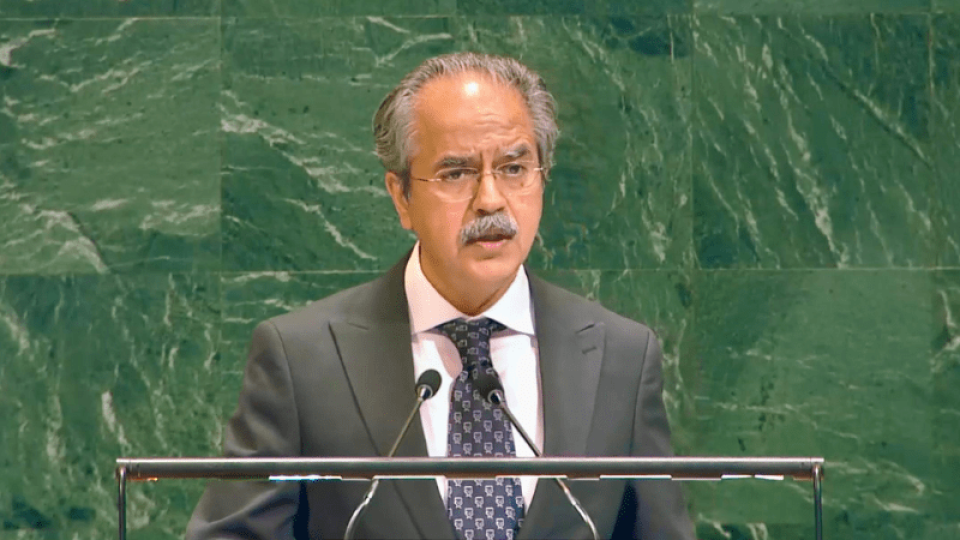July 8, 2025
WASHINGTON – Pakistan told the United Nations on Monday it has credible evidence of growing collaboration between terrorist groups such as the banned Tehreek-i-Taliban Pakistan (TTP), the Balochistan Liberation Army (BLA), and the Majeed Brigade, which aim to target the country’s strategic infrastructure and development projects.
Pakistan’s permanent representative to the UN, Ambassador Asim Iftikhar Ahmad, told the General Assembly that these groups were operating from ungoverned spaces inside Afghanistan.
His warning came amid a surge in terrorist violence in Pakistan in recent weeks. On June 28, a suicide attacker rammed an explosive-laden vehicle into a military convoy in North Waziristan, killing 16 soldiers and injuring several civilians. Days later, five senior officials — including an Assistant Commissioner — were killed in Bajaur when a roadside bomb hit their vehicle during a routine visit.
Ambassador Ahmad noted that many of these attacks are carried out with sophisticated weapons and equipment left behind by international forces following their 2021 withdrawal from Afghanistan.
“These weapons have been used by Afghan-based terrorists to launch increasingly sophisticated attacks against Pakistan, including in the last two weeks,” he said.
Pakistan’s envoy said that the TTP, with an estimated 6,000 fighters, was the largest UN-designated terrorist group operating from Afghan soil, and poses a threat, not just to Pakistan, but to regional and global stability as well. He also identified other groups active in Afghanistan, including IS-Khorasan, Al Qaeda, and various Baloch separatist factions.
“We must ensure that Afghanistan does not become a breeding ground for terrorists that threaten its neighbours and the broader international community,” he said, urging the United Nations and regional powers to act against “spoilers” who could reignite conflict in the region.
Secretary-level talks
Meanwhile, Kabul and Islamabad held their first-ever additional secretary-level talks on Monday, in line with the agreement reached during Foreign Minister Ishaq Dar’s visit to Afghanistan in April.
Additional Secretary (Afghanistan & West Asia) Ambassador Syed Ali Asad Gillani represented the Pakistani side while the Afghan side was led by First Political Division DG at the Ministry of Foreign Affairs Mufti Noor Ahmad Noor. The two sides discussed trade and transit cooperation, security, and connectivity, the FO statement said.
Both sides also termed terrorism a serious threat to regional peace and agreed the region can’t develop without addressing security issues. Emphasising the need for “concrete actions against terrorist groups operating on Afghan soil”, the Pakistani delegation noted that such groups undermine the security and hinder regional development.
The meeting also reviewed measures to boost trade, including the facilitation of Afghan transit trade, the removal of 10 per cent processing fee, provision of an insurance guarantee, reduction in scanning and examination, and operationalisation of the track and trace system.
Iftikhar A. Khan in Islamabad also contributed to this report


